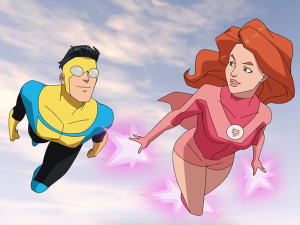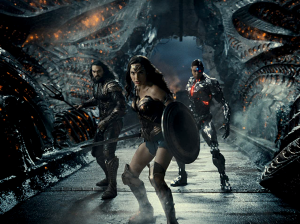“Venom” and the Fate of the MCU
Where Sony Entertainment went wrong
November 12, 2021
Note: The following review contains spoilers for “Venom” (2018) and “Venom: Let There Be Carnage” (2021).
Perfection: it’s hard to define.
However, that doesn’t excuse the quality of some of Sony Entertainment’s Marvel films. Anthony Mackie, who plays Falcon in the Marvel Cinematic Universe, said it best in a segment from an interview at London Comic Con 2017: “It’s a different time now — the industry makes certain movies for specific audiences as opposed to just making good movies, and that’s why most people stop going to the movies: ‘cause most of the movies suck.”
A prime example of this phenomenon? Sony’s “Venom” saga.
The Original Issue
“Venom” (2018) followed Eddie Brock (Tom Hardy), a journalist in the Spider-Man series whose life is destroyed after he uncovers a dark secret held by the tech company Life Foundation.
After reading classified information, Eddie confronts CEO Carlton Drake (Riz Ahmed) and finds that the foundation is in the midst of experimenting with symbiotes: abnormal parasitic creatures that grant hosts extraordinary powers, but at a cost. Drake uses his connections to get Eddie fired, but Eddie still ventures back to the Life Foundation and encounters the symbiote Venom, which bonds itself to him.
The rest of the movie consists of Eddie and Venom dealing with their personal issues and stopping Drake and his symbiote Riot from taking over Earth.
While the action is spectacular, the plot leaves much to be desired. I found the way Eddie lost his job unrealistic, which made it hard to sympathize with him; and the producers wasted time for potential character development by having Riot “body hop” across the world to Drake, when the two could’ve been bonded from the start.
Lack of Redemption
For those who have seen “Venom” for its faults like I have and are hoping for something different from its sequel, sorry to disappoint you: With a near-exact run time and similarly lackluster plot, October’s release of “Venom: Let There Be Carnage” feels like an afterthought.
After the events of “Venom,” Eddie is too-conveniently chosen to interview the infamous Cletus Kasady (Woody Harrelson). During the interview, Venom gives birth to another symbiote, Carnage, which then bonds to Cletus.
The resulting fallout between Venom and Eddie leads Cletus and Carnage to take center stage, going on a rampage to rescue Cletus’ longtime love Frances Barrison (Naomie Harris) from an asylum.
It seems that all Sony was worried about with this movie was producing more Venom content to aid the Spider-Man storyline. After all, what is Venom without Spider-Man? A lot, actually — but this movie doesn’t take the anti-hero out of Spider-Man’s shadow, it just paves the way for a head-on collision.
The Future
Although “Carnage” didn’t deliver on Venom’s full potential, there is still room for development. This could all be water under the bridge for the symbiote, because Venom is now officially in the MCU; at least according to “Carnage”‘s post-credit scene, which ties in with the scene after “Spider-Man: Far From Home” (2019).
There has been a lot of speculation about the MCU including more characters in films as it gains access to copyrights, like in “Spider-Man: Into the Spider-Verse” (2018). With the aforementioned scenes and “Spider-Man: No Way Home” on the horizon, this speculation has been all but confirmed for Venom.
There’s so much to look forward to with the MCU, and as more and more properties come back into the fold, the potential is limitless.











